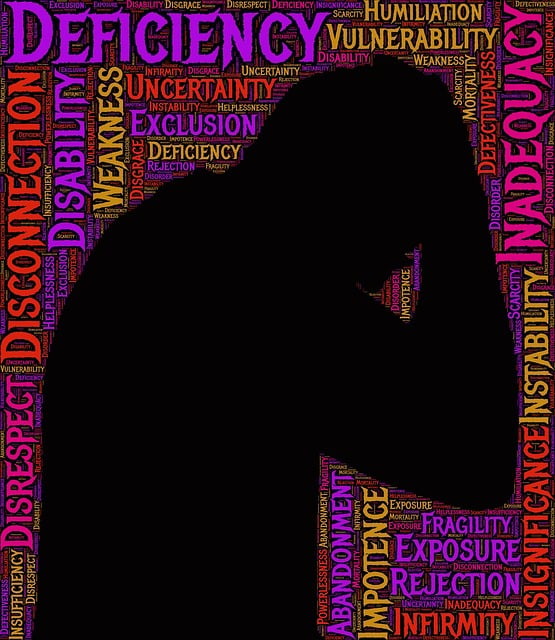Colorado Springs Christian Counseling Therapy (CSCCT) employs the Resourceful Fronting and Mastering (RFM) framework, rooted in positive psychology, to boost resilience and mental well-being. This approach, tailored to individual and community needs, includes conflict resolution techniques, self-awareness exercises, and crisis intervention guidance. By fostering emotional strength and effective coping strategies, CSCCT empowers clients to navigate life's challenges, reduce stigma around mental health, and enhance the holistic social fabric of communities.
“Resilience is a powerful tool for navigating life’s challenges, and the RFM (Recovery, Flexibility, and Mastery) model offers a structured approach to building this vital skill. This article explores how Colorado Springs Christian Counseling Therapy integrates RFM into their practice, enhancing clients’ mental well-being. We delve into the science behind resilience exercises, their tangible impacts, and provide practical tips for individuals seeking to incorporate these strategies into daily life, fostering adaptability and emotional strength.”
- Understanding RFM and Its Role in Resilience Building
- The Impact of Resilience Exercises on Mental Well-being
- Implementing RFM Strategies in Colorado Springs Christian Counseling Therapy
- Practical Tips for Incorporating Resilience Training in Everyday Life
Understanding RFM and Its Role in Resilience Building

Resilience is a critical component of mental well-being, enabling individuals to navigate life’s challenges with adaptability and bounce back from adversity. That’s where RFM—a powerful framework derived from research in positive psychology—enters the picture. RFM stands for Resourceful Fronting and Mastering, reflecting its approach to proactively building resilience by identifying personal strengths and employing effective coping strategies.
By integrating RFM principles into counseling practices, such as those offered at Colorado Springs Christian Counseling Therapy, therapists can empower individuals to cultivate a more resilient mindset. This involves helping clients recognize their inherent resources—be it strong social connections, positive self-talk, or problem-solving abilities—and teaching them practical tools for navigating difficult situations. Such interventions not only contribute to Depression Prevention and Coping Skills Development but also play a vital role in Mental Illness Stigma Reduction Efforts by fostering understanding and resilience among those facing mental health challenges.
The Impact of Resilience Exercises on Mental Well-being

Resilience exercises have a profound impact on mental well-being, especially when tailored to meet the unique needs of individuals and communities. At Colorado Springs Christian Counseling Therapy, our approach leverages the power of these exercises to empower clients with effective coping strategies and enhance their overall resilience. By integrating techniques like conflict resolution and mind over matter principles into therapeutic practices, we help individuals navigate life’s challenges with greater ease.
Community outreach program implementation plays a crucial role in broadening the reach of these benefits. Through collaborative efforts, we can ensure that resilience-building exercises are accessible to diverse populations, fostering stronger, more resilient communities. This holistic approach not only supports individual mental health but also strengthens the social fabric, creating a supportive network that reverberates positive change far beyond the confines of counseling settings.
Implementing RFM Strategies in Colorado Springs Christian Counseling Therapy

In Colorado Springs Christian Counseling Therapy, integrating RFM (Resilience, Flexibility, and Mastery) strategies has proven to be a transformative approach in fostering resilience among clients. This therapeutic model recognizes that building emotional resilience is a key component of overall well-being, particularly when navigating life’s challenges. By incorporating RFM exercises tailored to individual needs, counselors enable clients to develop self-awareness, enhance coping mechanisms, and cultivate a sense of control and mastery over their lives.
The implementation of these strategies often involves Public Awareness Campaigns Development, where educational initiatives raise awareness about the importance of resilience in mental health. Through Self-Awareness Exercises, individuals can identify triggers and vulnerabilities, allowing for proactive crisis intervention. Moreover, Crisis Intervention Guidance plays a pivotal role in teaching clients practical tools to manage acute stress and distressing situations effectively.
Practical Tips for Incorporating Resilience Training in Everyday Life

Building resilience is an essential aspect of maintaining good mental health, especially in today’s fast-paced and often stressful world. For those seeking to incorporate resilience training into their daily lives, here are some practical tips inspired by Colorado Springs Christian Counseling Therapy practices. One effective strategy is to cultivate a consistent self-care routine; this can include activities like meditation, journaling, or engaging in hobbies that promote relaxation and mindfulness. By dedicating time for emotional healing processes, individuals can enhance their ability to cope with life’s challenges.
Moreover, mental wellness advocates suggest incorporating gratitude practices into daily routines. Expressing gratitude for even the smallest of things can shift one’s perspective, fostering a more positive mindset. Additionally, setting realistic goals and breaking them down into manageable tasks helps in building mental health awareness and a sense of accomplishment. These simple yet powerful tools can significantly contribute to an individual’s overall well-being and resilience, allowing them to navigate life’s twists and turns with greater ease.
Resilience is a powerful tool for navigating life’s challenges, and RFM (Recovery-Focused Methodology) offers a structured approach to building this strength. As demonstrated in the context of Colorado Springs Christian Counseling Therapy, integrating resilience exercises into therapy sessions has significant benefits for mental well-being. By combining evidence-based practices with a faith-based perspective, therapists can empower individuals to overcome adversity and lead more fulfilling lives. Implementing RFM strategies provides a holistic framework that extends beyond the counseling room, offering practical tips for incorporating resilience training into everyday routines. This approach ensures that clients gain the skills needed to thrive in all aspects of their lives, fostering a sense of empowerment and adaptability.














